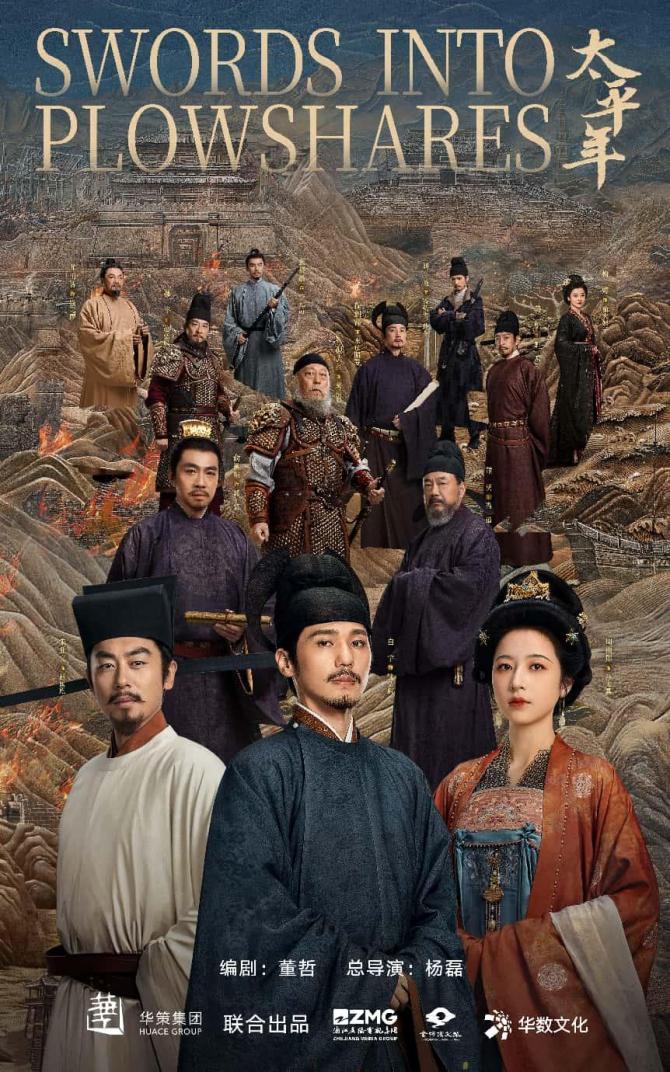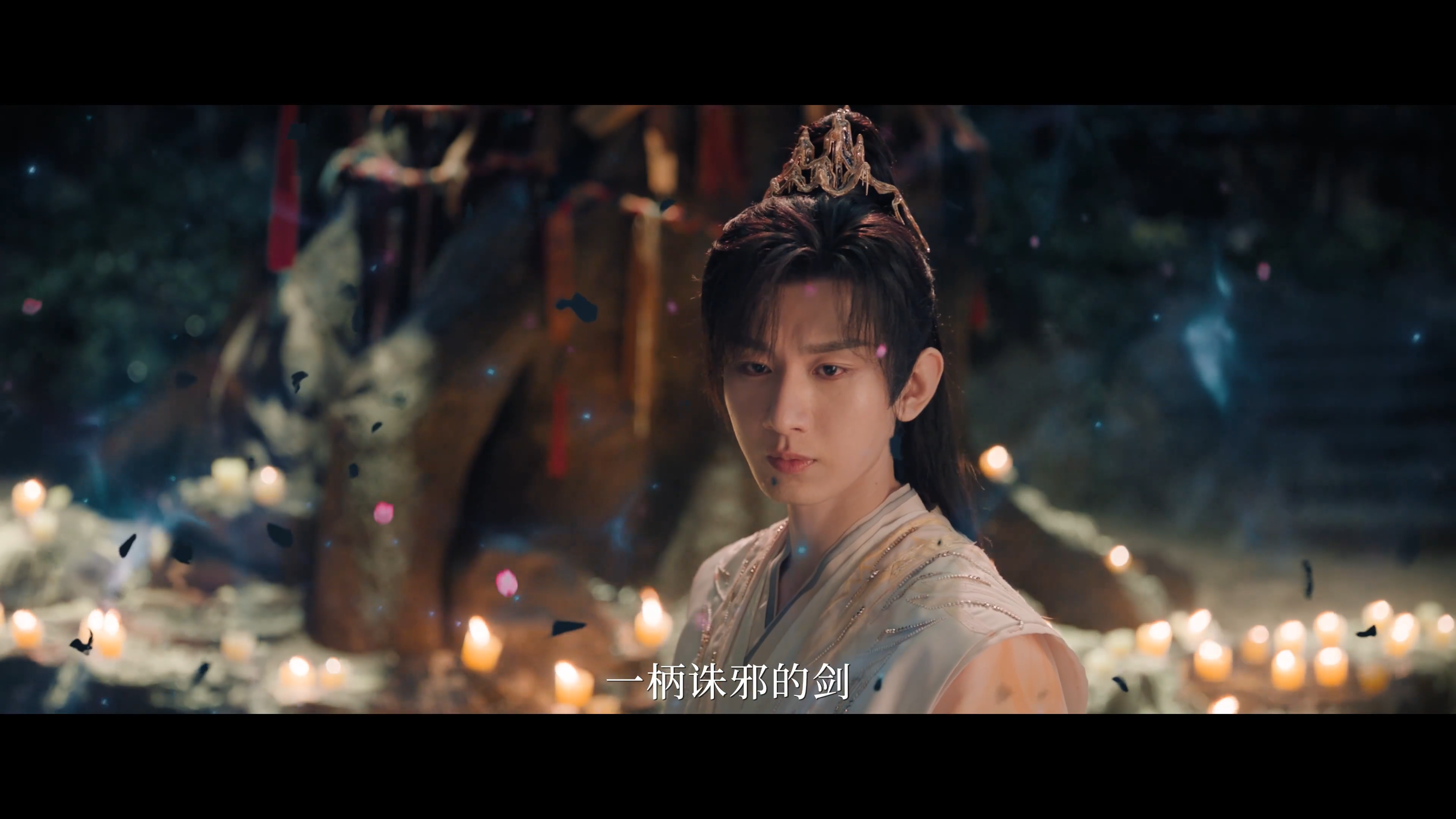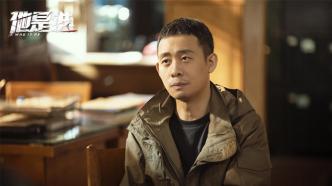
The TV series "Who Is He" is on the air, but the director Bao Chengzhi's name is not familiar to many viewers. But as early as 2000, Bao Chengzhi followed the famous director Ding Hei and became the main creator of classic drama series such as "Jade Guanyin" and "The Great Qin Empire". His last work was "Police Honor", which was highly praised last year. It tells the life and work of a police officer in a community film. And this time, Bao Chengzhi came with "Who is He", telling the story of the criminal police in the 1990s.
In 2021, Bao Chengzhi got the script of "Who is He", and it took three or four years to repeatedly polish and revise the script creation. What attracts Bao Chengzhi most at the story level is firstly the solid case foundation and clue structure, including the characters and relationships among them; secondly, it has a strong documentary temperament as a criminal investigation drama. "This script is relatively simple, and even has a sense of documentary literature. One thing that particularly moved me was that it described the real working and living conditions of the front-line police officers in a very simple way."
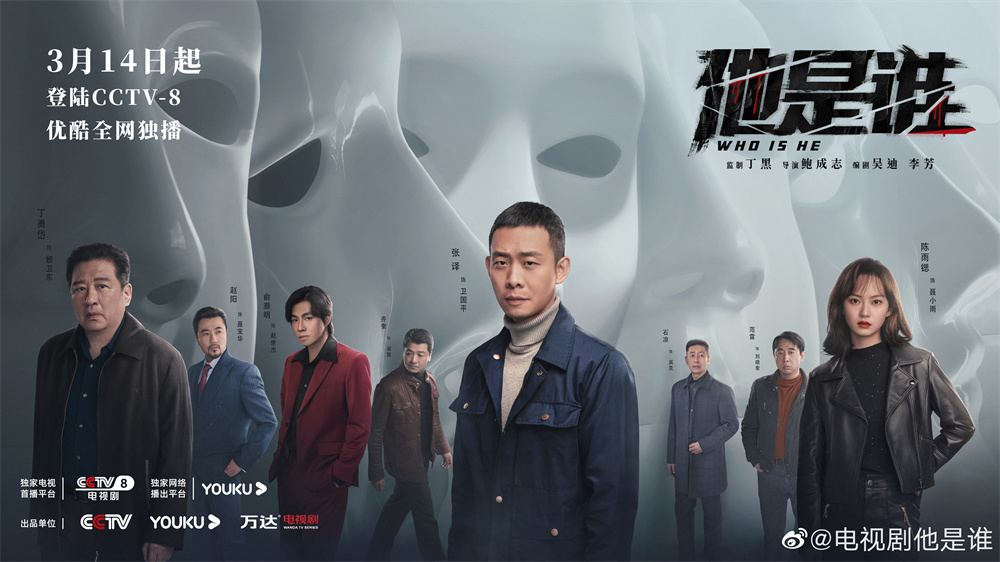
Who is he poster
Restoring the society at that time
But one part is the strong dramatic conflict in solving the murder case, and the other part is the daily life of the police officers. So how to combine the two, so that the suspense of the case can continue, and at the same time, the life part can be presented well? "The combination and construction of these two parts is our difficulty and our characteristic." Bao Chengzhi said, "We hope to find more life-oriented points for the protagonists in this work besides solving crimes, and hope to shape the character in an all-round way. The character image shows everyone the true state of this professional group.”
Therefore, "Who is He" does not tell the story in the form of traditional unit cases, but advances in the form of cases within cases of main line cases + branch cases. Because in real life, "the task of the police is seldom to start another case after one case is over. Many times it needs to be multi-faceted and full of accidents, so at this point, I also hope to restore the working status of the real police at that time as much as possible."
In addition, "Who is He" tells the story of accumulated cases and unsolved cases. Bao Chengzhi said that this is directly related to the environment, technical conditions, and even the ecology of the entire society at that time. In the 1980s and 1990s, there was no public security monitoring system in cities and villages, and there was no mature scientific and technological authentication methods such as DNA identification. The original way to complete seemingly impossible tasks one by one, "makes the audience feel more what persistence is."
Bao Chengzhi also hopes to present the social outlook at that time through the case and police life. "The late 1980s and early 1990s happened to be a period of rapid social change and contradictions in Chinese society. Unlike ours today, some institutions and systems were established more fully and clearly, with clear boundaries." In the environment at that time , whether it is to solve the case or the life of the characters, there is the possibility of a "special chemical reaction". "And this special chemical reaction, special life ecology and character relationship are what we are interested in and want to present."
In order to restore that era, the scenes and props in the play are also extremely realistic. In the first few episodes, the corpse hunting scene in the garbage dump that sparked heated discussions among the audience is extremely realistic. In fact, the scene was built on the spot at an abandoned construction site, and all the garbage was 60 or 70 truckloads of real domestic garbage bought by the crew. It was raining during filming In the snow, the entire garbage dump has been soaked, which is a physical and mental test for the filming team and the protagonists. However, Bao Chengzhi insisted that the sense of realism produced by live shooting cannot be compared with virtual shooting, and this is how he created the famous scene of "Who is He".
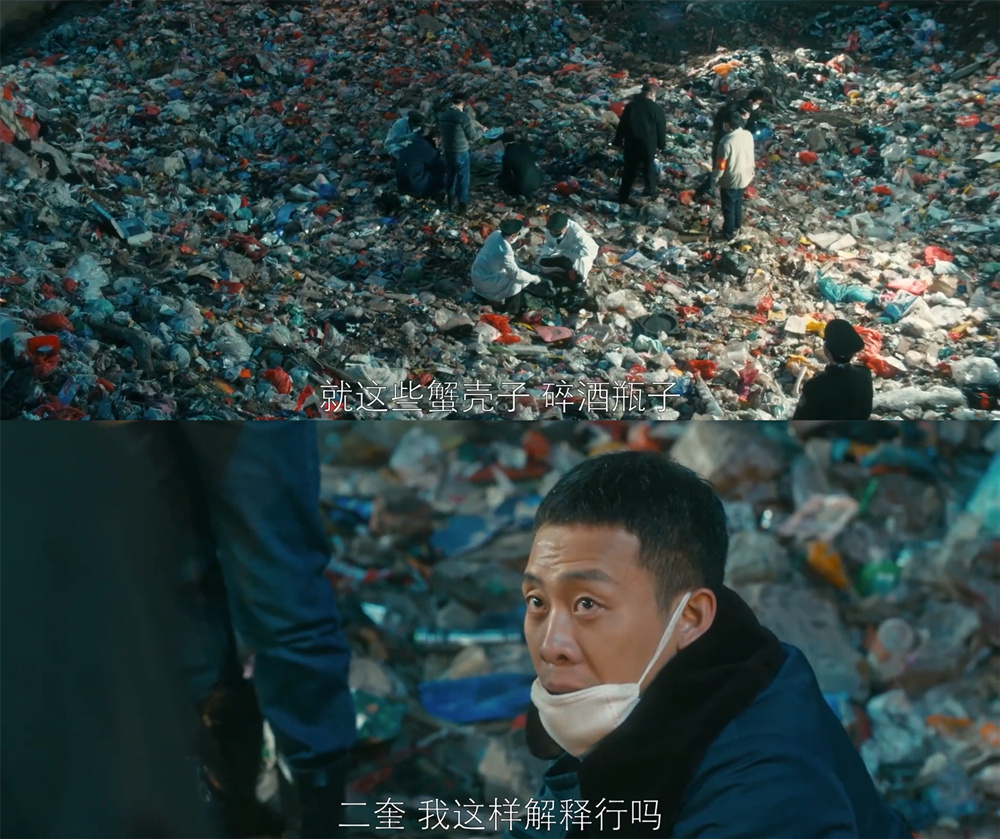
"Who is he" screenshot
Demonstrate "humanity", not "divinity"
The protagonist Wei Guoping (played by Zhang Yi) in "Who Is He" clearly outlined his weaknesses and problems in character creation, which also aroused discussions among many audiences. "Many times, we can't help adding a lot of perfect settings to a positive character, especially a character like a policeman. When shaping Wei Guo, we hope to find his uniqueness."
"If a character is too perfect, it will easily make the audience feel a sense of distance." Bao Chengzhi hopes to show more of the protagonist's "humanity" rather than "divine nature". "After a lot of thinking and exploration, we want to create a 'weak' hero." The protagonist Wei Guoping is tough and strong, but he has a self-denying side in his heart. "This self-denial means that he will deny that he 'should have happiness and happiness'." Because of the self-blame of witnessing the sacrifice of his comrades-in-arms, he always blocks his own happiness and does not allow himself to live a normal life. "For Wei Guoping, his entire life experience, including the huge shocks he encountered, caused his pain and heart knot. Such an image. His pursuit of the truth, occasional emotional impulsiveness, and even fleeting fragility all come from this, and this image is vivid and real."
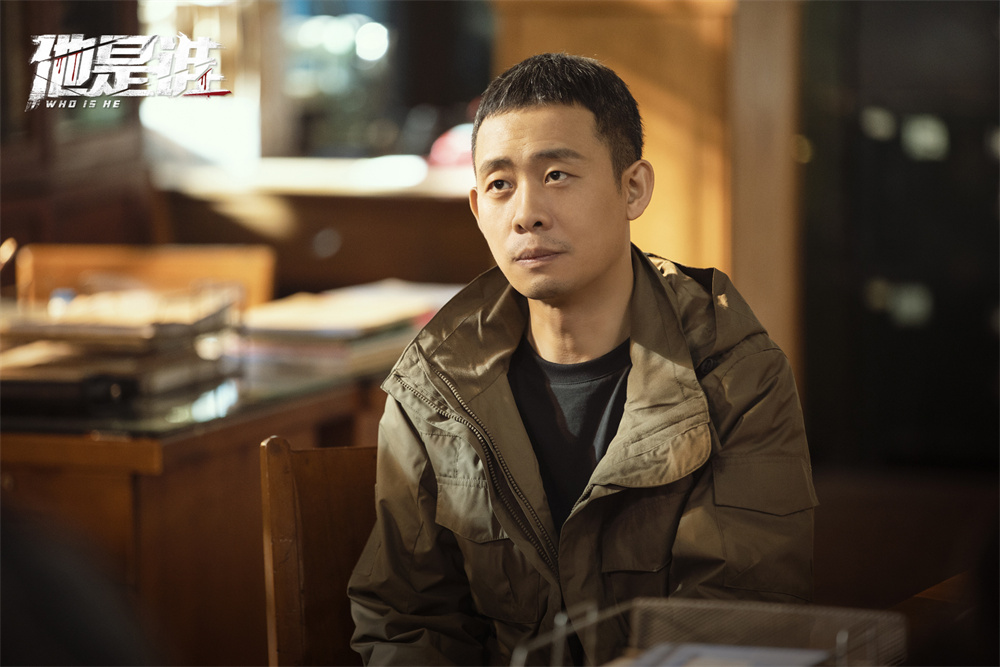
Zhang Yi as Wei Guoping
The role of Gu Kaiyan (played by Xu Fangyi) in "Who Is He" also broke through the stereotype that many female characters in "tough guy" criminal investigation dramas tend to become "vases". She is witty and calm, adheres to principles, and can "confront" Wei Guoping head-on, pouring cold water on him who is hotheaded and irrational. In this regard, Bao Chengzhi mentioned, "It is not objective to attribute all female characters in criminal investigation dramas to 'vases'. Of course, female characters are not vases. In the drama, she must have her dramatic actions and her motivation. Including the push and pull of the whole story."
In the criminal police team in real life, there are many outstanding female police officers like Gu Kaiyan. For the role of Gu Kaiyan, on the one hand, the main creators equip him with the professional ability and accomplishment that a criminal policeman should possess; She plays the role of "coolant" and "stabilizer". "We hope that through the role of Gu Kaiyan, we can show the excellence of the policewomen and their shining points that may be overlooked by the public."
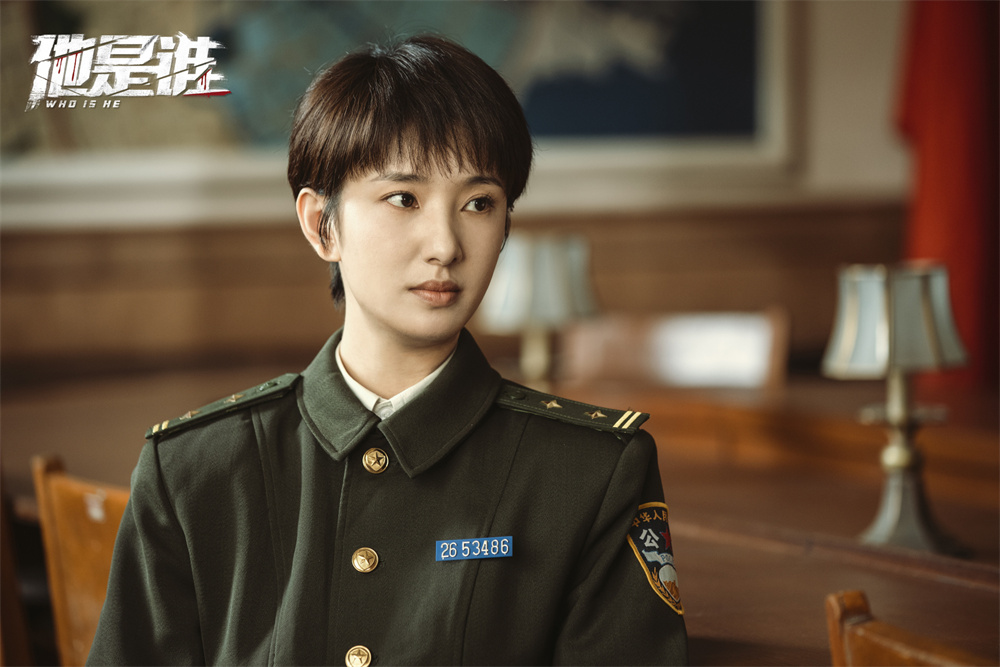
"Who is He" Stills, Xu Fangyi as Gu Kaiyan
Fight the case, fight yourself
"When faced with the confrontation between good and evil, we usually think that 'evil' itself is undoubtedly something that needs to be eliminated and controlled, but we rarely consider from another perspective, whether the scope of this 'evil' is like We thought it was so simple?" In "Who is He", Wei Guoping fell into subjective speculation about the suspect due to his heart, and almost lost his rationality for the evidence several times, and deviated from the investigation of the truth. In the play, when Wu Ke (played by Shi Liang) wrote down the word "maliciousness" in class, asked Wei Guoping "Have you ever had such speculation", and said "There is no justice without truth", Wei Guoping Ping shed tears. This scene elevates the play's intention a lot.
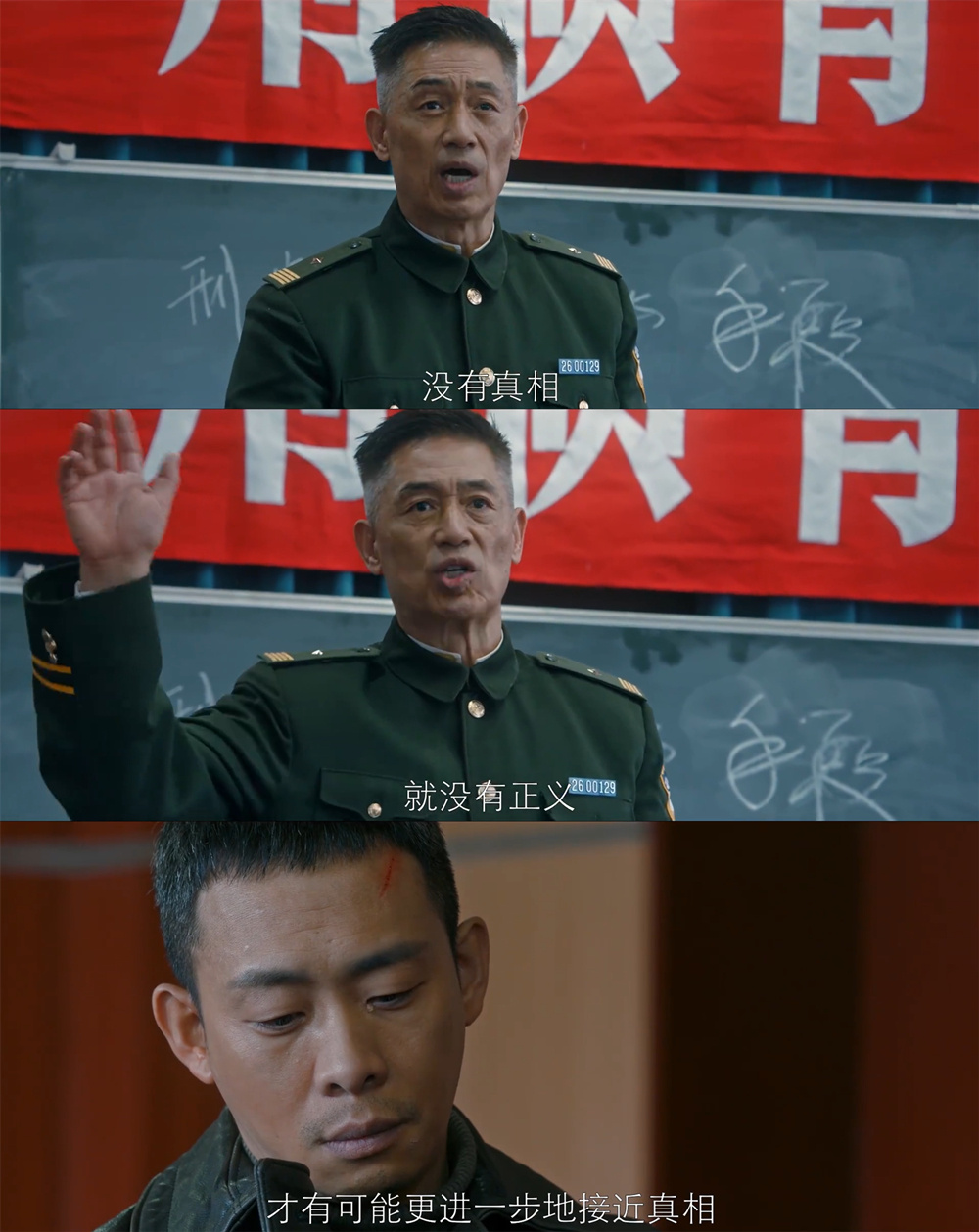
"Who is he" screenshot
"The protagonist is not an all-knowing and omnipotent superhero." This is different from many suspenseful crime-solving masterpieces that are rich in detectives abroad. "The Sherlock Holmes-style detective story is another form of creation, and we pay more attention to the superhero-style character creation. And we Focus more on the story itself, hoping to shorten the distance between the audience and the characters in the play as much as possible, and help the audience empathize with the characters through the reality of the human situation."
"In the process of solving a case, when you are too persistent or devoted, you actually fall into another kind of predicament. This is not only the predicament of the protagonist, but also a problem that our law needs to think about." Bao Chengzhi said that he hoped that "he is "Who" can express the legal construction and the progress of the judicial ecology in the current environment, and also want to establish a sense for the audience, that is: if the protagonist stands on the standpoint of justice, there will be no misunderstandings and no wrongdoing . "When the protagonist is fighting against external cases, he is also fighting against himself. This is a balance and conclusion of self-contradiction."
